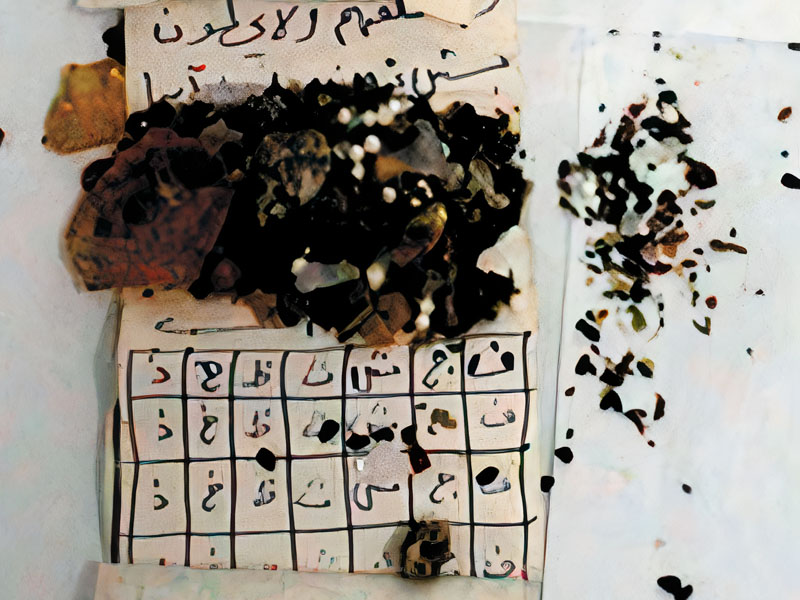Popular Beliefs and Roots of Magic Phenomenon
Issue 1

Dr. Sabri Musallam Hammadi
The writer thinks that continuity of some practices of magic at the beginning of the Twenty First Century is a matter of astonishment as the man of this age supposedly represents the epitome of a long journey of mankind. Man mind has developed to be compatible with his immense technological achievements compared to the age of primitive instruments and thinking of the first man that some anthropologists cal/primitive man, who represents a period preceding the rise of civilized man and modes of his thinking. This man with his diverse achievements in the fields of all human knowledge in all areas is what distinguishes this age and makes it unique compared with any age.
If scientific logic is considered one of the attributes of man of this age- as he is supposed to be - , the first man did not possess this amount of comprehension to enable him to find relationships between causes and effects. Thus, he reacts according to his logic which we consider nowadays the basis of the rise of magic.
It is inevitable for us to point out instances representing that ancient age where legends dominate accompanied by its logic of magic. At the time of aridness and drought, the First Man imitates the process of raining and the coming of fertility by pouring water on his body accompanied by some rites signifying the accumulation of clouds. He imitates the sound of thunder and shape of lightning. The First Man, due to lack of technical experience and his child mentality finds the imitation of natural phenomena a solution to his conflict with nature in a manner by which Nature responds to his will. If rain is abundant, he resorts to fire in a wish to stop rain for fear of consequences of floods.
The paper refers to the infiltration of some aspects of necromancy to fortune telling and priesthood to Arabs before Islam. Fortune telling is related to optimism and pessimism. However, fortune telling developed at a later stage from principles of delusions to accuracy of vision, which is innate with the Arabs and it took the shape of trace finding and physiognomy. There were no specialization as fortune teller may practice some magic acts
Priesthood at the time of Pre-Islamic Arabs was more akin to the spirit of magic and its practices. The Priest treated the sick by incantation and treated problems by inscribing on the sand with permeation of good or bad luck. The priest also deals with matters by blowing into knots. Blowing into knots was originally connected with reading incantations when the priest holds a thread and keeps on knotting and blowing the knots.
One of the phenomena that deserve to pay attention to is the rejection of magic and magicians from earlier times. Hammurabi’s codes consisting of 282 articles that go back to more than 3500 years ago mention in its second article a rule about magic and accusation of magic.
The researcher indicates that he had read some brochures by magicians of this age and found that most of these deal with the relationship between man and woman. Women often seek the help of magicians to consolidate love between them and their husbands or to discard the attention of their husbands to some women such as a second wife or a sister. Some women resort to the services of magicians to solve problems of pregnancy or treat an incurable disease.
The writer concludes that man in the Twentieth Century witnessed lots of achievements of civilization, if we exclude follies of wars , particularly the last two World Wars and other sporadic wars. Man got closer to the core of matters and knew their essence. More achievements are in store if this wonderful mental and technical growth continues. If nothing prevents this such as a destructive nuclear war, man today will look into the future and shall consider our methods now as something of a product of the past that should be over passed as we described the thought of the First Man as illogical and false.



































































